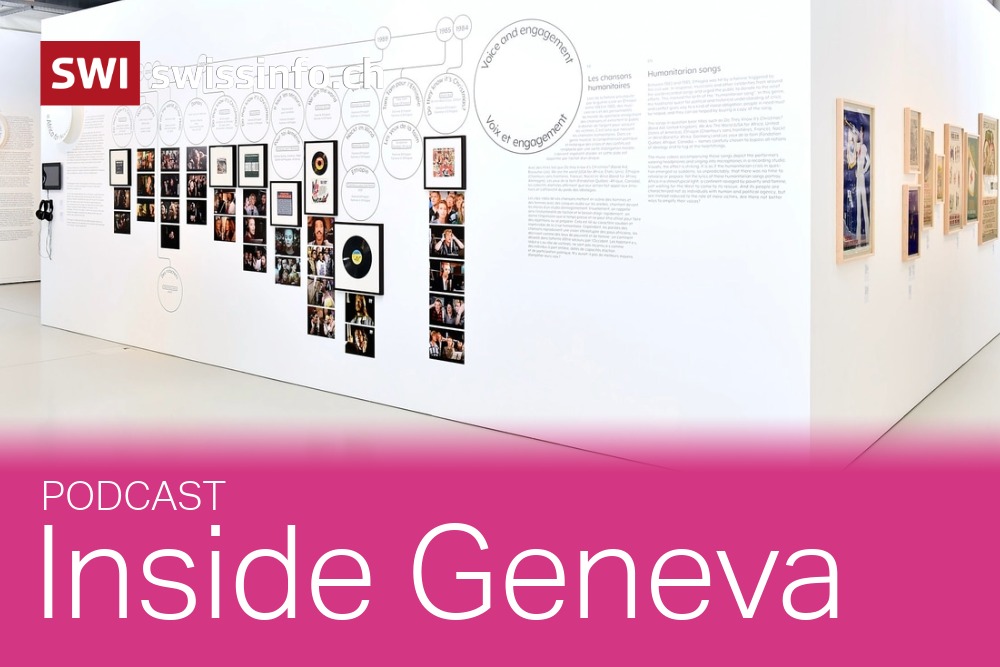
The Middle East conflict: a huge challenge to humanitarian law
One of the worst conflicts in decades has erupted in the Middle East. Here in Geneva, we have heard United Nations (UN) aid agencies make increasingly desperate calls for de-escalation, calm, and respect for international law.
There’s no question that the attack by Hamas on Israel was brutal and despicable. There can be no justification for targeting and taking hostage civilians, some of them elderly, some of them children. And there’s also no question that Israel’s response has been massive, and brutal too.
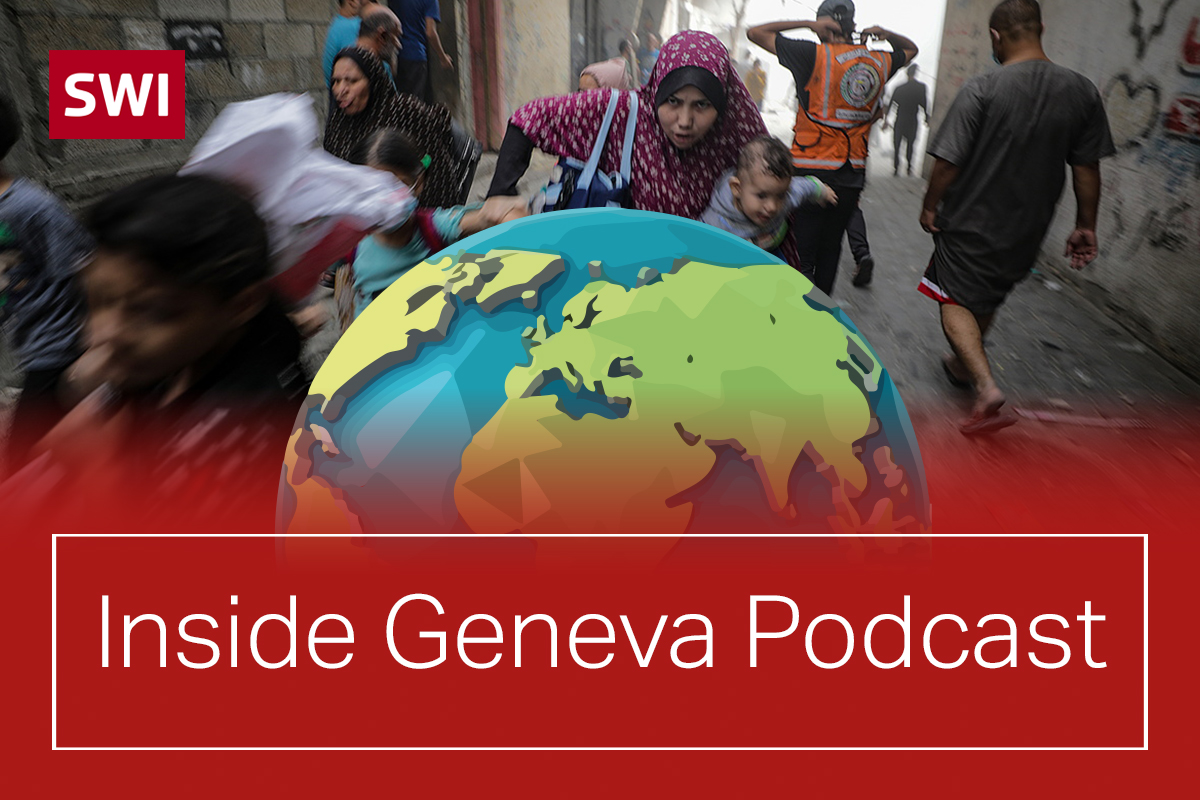
More
How the Israeli-Palestinian war challenges humanitarian aid
So what is permitted in a conflict like this? What do the rules of war say? And what are the challenges facing humanitarians? Can they even have a role at all? That’s what we’re discussing on our special edition of Inside Geneva this week.
My guests are a legal expert – Marco Sassòli, professor of international law at the university of Geneva, and Benoit Carpentier, of the International Federation of Red Cross and Red Crescent Societies (IFRC).
Peace even less possible
Sassòli tells us that his first thoughts on hearing about the Hamas attack were that “the massacres Hamas committed among those festival visitors are clear violations of international humanitarian law (IHL)”.
His fear, he tells Inside Geneva, was that Israel would “fall into the trap of Hamas” and commit violations too, making peace “even less possible”.
A fear, it seems, that has been justified. Immediately after the attack, Israel sealed off Gaza (already the subject of a blockade for over a decade) completely for three full weeks. Not even the basics for survival, such as food, water, medicines or fuel were allowed in, prompting UN officials, including the UN Human Rights Commissioner Volker Türk, to warn of the “collective punishment” of Gaza’s population of 2.3 million.
What do the rules of war say?
So what is prohibited in a conflict like this one? Israel has a standing army; Hamas is an armed group, regarded as a terrorist organisation by many countries.
Sassòli recognises the tricky politics around deciding whether what’s happening is an international or non-international armed conflict. But international humanitarian law applies to both, he points out. And in Israel, Sassòli says, Hamas did not just commit a one-off terror attack, it triggered a conflict (or some might say, it triggered the escalation of a long-existing conflict) “and international humanitarian law applies to armed conflict, whoever is right and whoever is wrong”.
What about Israel? It argues that it is defeating terrorism and defending itself from an existential attack. Here too, Sassòli says, the rules of war apply, however brutal the violence inflicted on Israeli civilians. Warning millions of Gazans to leave the north of the strip is not acceptable under IHL, because “the entire northern Gaza Strip is not a military objective”.
Humanitarian challenges
UN aid agencies are also adamant that denying adequate food, water, and medicines to an entire population, half of whom are under 15, cannot be justified. When Benoit Carpentier of the IFRC heard that, after three weeks of siege, some limited aid might be allowed in, he described it as “a drop in the ocean. It can’t be just a one-off opening, it will have to be a pipeline of humanitarian aid to be able to support people”.
The IFRC is partnered with both the Palestinian Red Crescent in Gaza, and Israel’s Magen David Adom. Both these groups, Carpentier tells Inside Geneva, are risking their lives to help people caught up in the violence.
“On the first weekend we lost three paramedics from the Magen David Adom in Israel. These are our colleagues and they were trying to help people. Three or four days later we lost another four people from the Palestinian Red Crescent.”
Aid agencies have so far not been permitted to send additional staff into Gaza; the medical supplies were not accompanied by doctors or paramedics. Inside Gaza, access to the north, where many people, some of them severely injured, remain despite Israel’s evacuation order, is virtually impossible.
And, crucially, fuel has so far not been included in the list of supplies permitted to enter. This means – the World Health Organisation (WHO) told us – that fuel for bakeries, ambulances, hospitals, and water desalination plants is running out. Gaza’s population is trying to survive on less than three litres of water per person per day. A very basic daily minimum, the WHO says, is 15 litres.
Is respect for IHL impossible?
There are many conflicts where we see the Geneva Conventions and international law flagrantly violated and humanitarian aid denied. Sassòli doesn’t necessarily believe this conflict is worse, and points to the carpet bombing of Vietnam, or the brutal violence and denial of aid in Syria.
Sassòli hopes the shuttle diplomacy of world leaders to Israel is not just to publicly assert Israel’s unquestioned right to defend itself, but to quietly and bilaterally remind Israel’s leaders that defence must not disregard IHL, and must not target civilians or civilian infrastructure.
But, he adds, we should not view IHL as some miracle way to conduct wars, in which virtually no one gets hurt. “Humanitarian law was never meant as saying wars are wonderful. No, wars are terrible, but they are much less terrible if the parties make an effort to comply with humanitarian law.”
Benoit Carpentier adds a plea for his colleagues who remain in Gaza trying to offer humanitarian aid. “We need to ensure safety of civilians and safety of health workers, humanitarian workers on the ground. Our colleagues from the Palestine Red Crescent are telling us, ‘yes we have no food, yes we have no water, yes we have none of these. But we don’t even know if we’ll be alive tomorrow’.”
To hear more of this discussion, listen to Inside Geneva. And as ever with war, since this episode was recorded, there have been some developments – a trickle of aid into Gaza, a few hostages released. But the death toll has climbed past 5000, and more than 200 hostages are still being held, their desperate families are still waiting for news.
“We can only reiterate the call to stop the violence,” says Carpentier. “Because for us, a life is a life.”
For more insights and discussions from Switzerland’s international city, subscribe to Inside Geneva on Apple PodcastsExternal link, SpotifyExternal link, or wherever you get your podcasts. And subscribe to our newsletter to get all the International Geneva news and views from Imogen Foulkes in your inbox:
Sign up! The latest updates from International Geneva – in your inbox
For more audio content from SWI swissinfo.ch, explore The Swiss Connection, a podcast with Swiss stories for the world.

In compliance with the JTI standards
More: SWI swissinfo.ch certified by the Journalism Trust Initiative










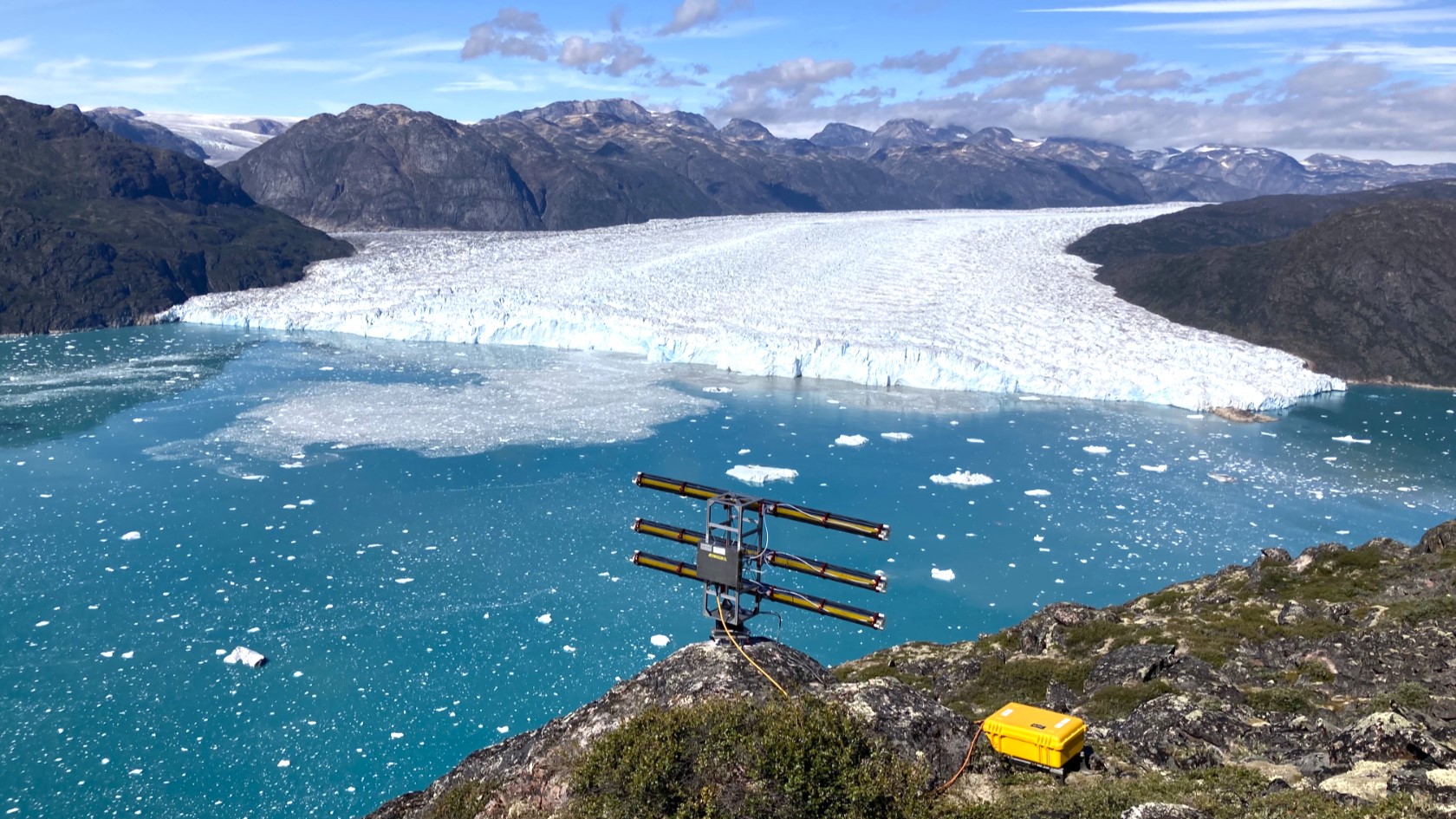























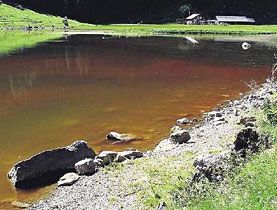
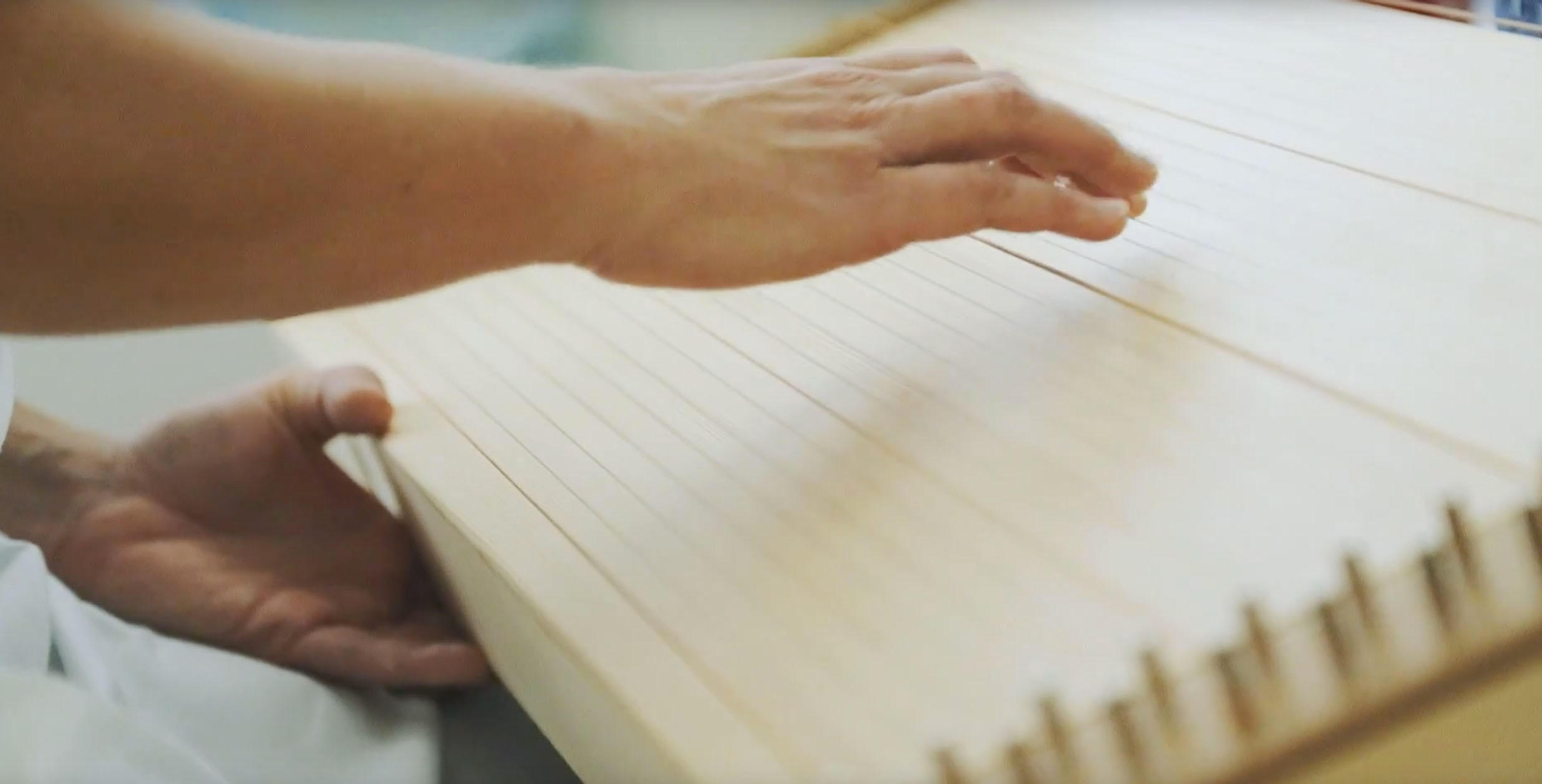
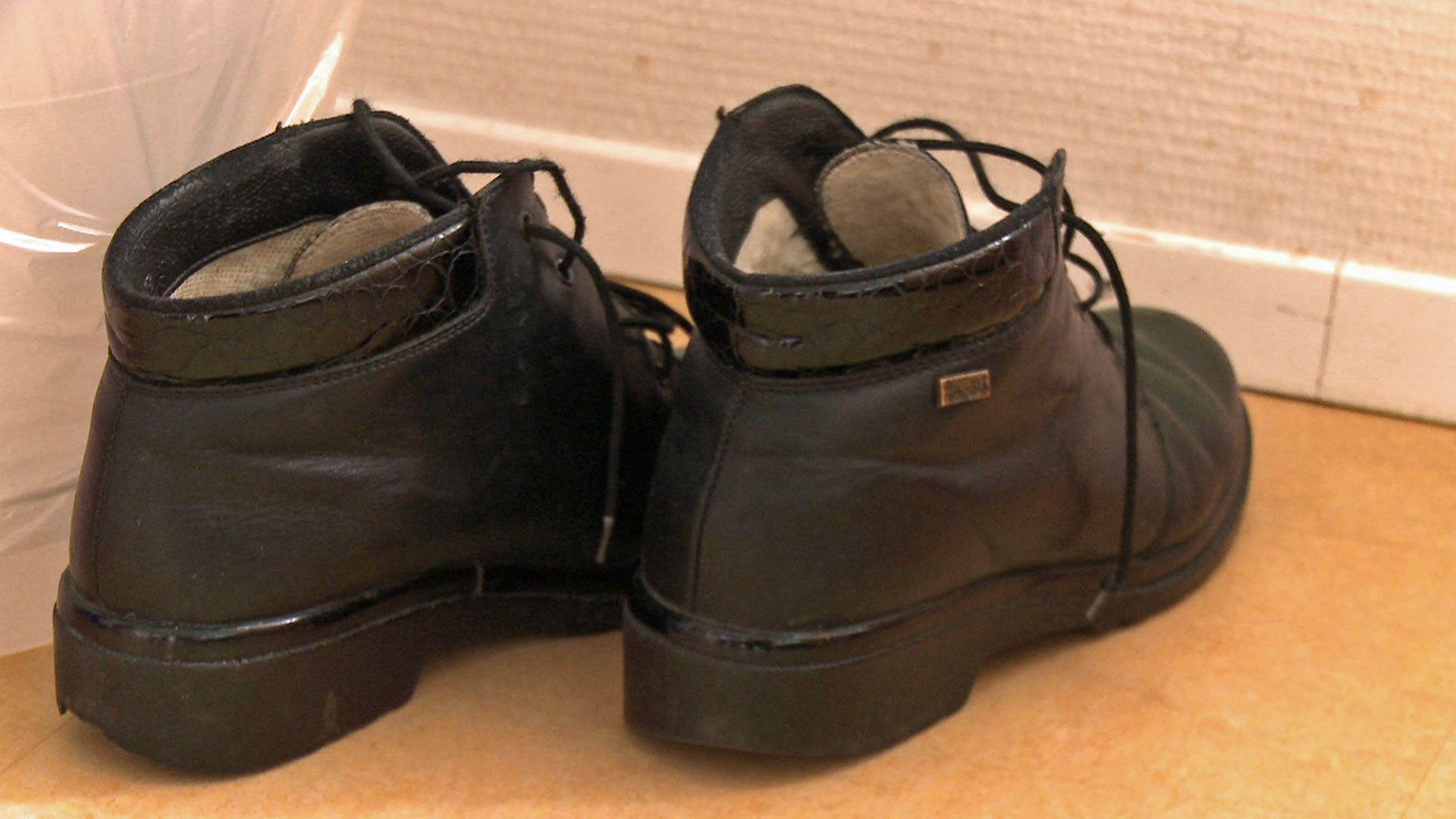


You can find an overview of ongoing debates with our journalists here . Please join us!
If you want to start a conversation about a topic raised in this article or want to report factual errors, email us at english@swissinfo.ch.